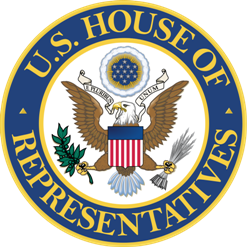A Brief Review of Overlooked States in US House Speaker Votes
Residents of nine states have never won a single vote for Speaker and 10 others have not received a vote in over 100 years

Prior to Mike Johnson’s election as Speaker with 220 votes, fellow Louisiana GOP U.S. Representative Steve Scalise received seven votes on the first two October ballots and eight on the third.
That marked the first time in 163 years a Louisianan received a Speaker vote since 1860 when Democrat Miles Taylor won 12 votes and John Bouligny of the American Party received one.
Likewise, Arkansas had not tallied a vote for Speaker since Democrat Albert Rust in 1860 until Republican Bruce Westerman received a single vote on the second ballot last month.
Other states saw a member of their U.S. House delegation win votes for the first time in decades:
- Indiana Republican Jim Banks (one vote, 1st ballot in January): first since Republican Charles Halleck won 175 votes in 1963
- Minnesota Republican Tom Emmer (one vote, 1st through 3rd October ballots): first since Farmer-Laborite Paul Kvale won five votes in 1933
- Oklahoma Republicans Kevin Hern (22 cumulative votes on the 8th through 12th ballots in January) and Tom Cole (one vote on the 1st October ballot): first since Democrat Carl Albert was reelected to the speakership with 287 votes in 1975
Residents of nine states have yet to receive a single vote for U.S. House Speaker: Alaska, Hawaii, Montana, New Mexico, North Dakota, South Dakota, Utah, West Virginia, and Wyoming.
Ten additional states have not had a resident receive a vote for Speaker in more than 110 years:
- Connecticut (1856): American Party Representatives John Woodruff (two votes) and Ezra Clark (one)
- New Hampshire (1856): American Party Representative Mason Tappan (four)
- Rhode Island (1856): American Party Representative Benjamin Thurston (11)
- Vermont (1856): Whig James Meacham (eight)
- New Jersey (1860): Republican William Pennington (117, elected Speaker), Democrat Garnett Adrian (three), and Democrat Jetur Riggs (two)
- Maine (1897): Republican Thomas Reed (199, elected Speaker)
- Colorado (1899): Populist John Bell (four)
- Nevada (1899): Francis Newslands of the Silver Party (two)
- Mississippi (1907): Democrat John Sharp Williams (162)
- Nebraska (1911): Republican George Norris (one)
Massachusetts politicians currently lead the way with 5,863 cumulative votes across all Speaker ballots in U.S. House history.
California is a close second with 5,799 votes, thanks in large part to the GOP requiring 15 ballots in January to push nominee Kevin McCarthy across the finish line.
New York (5,132), Illinois (4,385), and Ohio (3,708) round out the Top Five.
Follow Smart Politics on X/Twitter.

I recently went though an old article where you discuss Hillary Clinton having the worst performance for a democrat in WV and the worst since 1972 in OK, AR and TN.
Well, Joe Biden fell further in AR, in fact AR has been getting more red for decades.
It voted for George HW Bush by about 14 points in 1988, then it went to Bill Clinton by around 18 points in 1992-as of 2023, this is the last time AR got more blue compared to 4 years earlier. In 1996, Bill Clinton won by 17 points. George W Bush then won by 5 points in 2000 and by 10 points in 2004. It then voted for John McCain by 20 points in 2008-that’s the moment AR became safe red. It then went to Mitt Romney by 24 points in 2012 and Donald Trump won by 27 points in 2016 and by 28 points in 2020. The last 3 election were each called the best republican performance in AR since 1972.